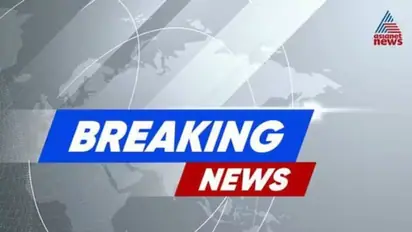Unidentified gunmen kill 6, including local Revolutionary Guard chief, in attacks across Iran towns

Synopsis
Unidentified gunmen carried out two separate attacks in southern Iran on Tuesday, resulting in the deaths of six people, including a local chief of the paramilitary Revolutionary Guard, according to state TV reports.
A series of violent attacks by unidentified gunmen in Iran's Sistan and Baluchistan province on Tuesday resulted in the deaths of six individuals, including a local chief of the paramilitary Revolutionary Guard. According to reports from state television, the incidents occurred in two separate attacks within the same region, highlighting ongoing security challenges in an area known for its complex socio-political dynamics.
The first attack claimed the lives of the head of a town council, Parviz Kadkhodaei, along with two volunteer members of the Guard. This incident occurred in Nikshahar town, approximately 1,350 kilometers (840 miles) southeast of Tehran, following a school ceremony attended by the victims.
The second attack occurred in Khash town, also within the southeastern province of Sistan and Baluchistan, where two police officers were killed.
As of now, no group has claimed responsibility for these attacks.
These recent incidents follow a troubling trend in Sistan and Baluchistan, which has been marred by violence and unrest. In September, gunmen killed four border guards in the province during two separate assaults. The militant group Jaish al-Adl, which advocates for the rights of the ethnic Baluch minority, claimed responsibility for one of those attacks, resulting in the deaths of one officer and two soldiers in the border guard.
Sistan and Baluchistan, which shares borders with Afghanistan and Pakistan, is one of Iran's least developed regions. It has frequently been the scene of deadly clashes involving militant groups, drug traffickers, and Iranian security forces. The predominantly Sunni Muslim population of the province has historically experienced tension with Iran's Shiite theocracy, leading to an environment of mistrust and sporadic violence.
Check the Breaking News Today and Latest News from across India and around the world. Stay updated with the latest World News and global developments from politics to economy and current affairs. Get in-depth coverage of China News, Europe News, Pakistan News, and South Asia News, along with top headlines from the UK and US. Follow expert analysis, international trends, and breaking updates from around the globe. Download the Asianet News Official App from the Android Play Store and iPhone App Store for accurate and timely news updates anytime, anywhere.